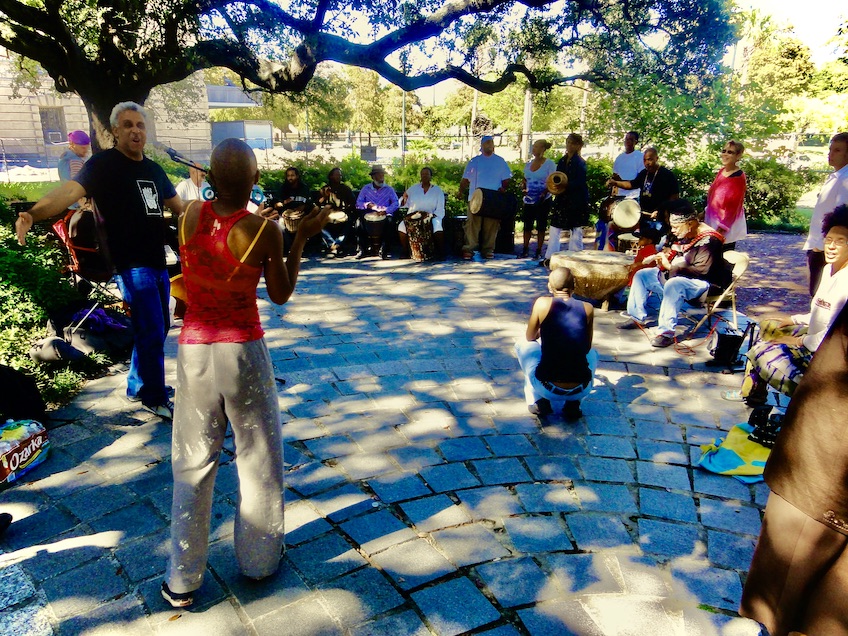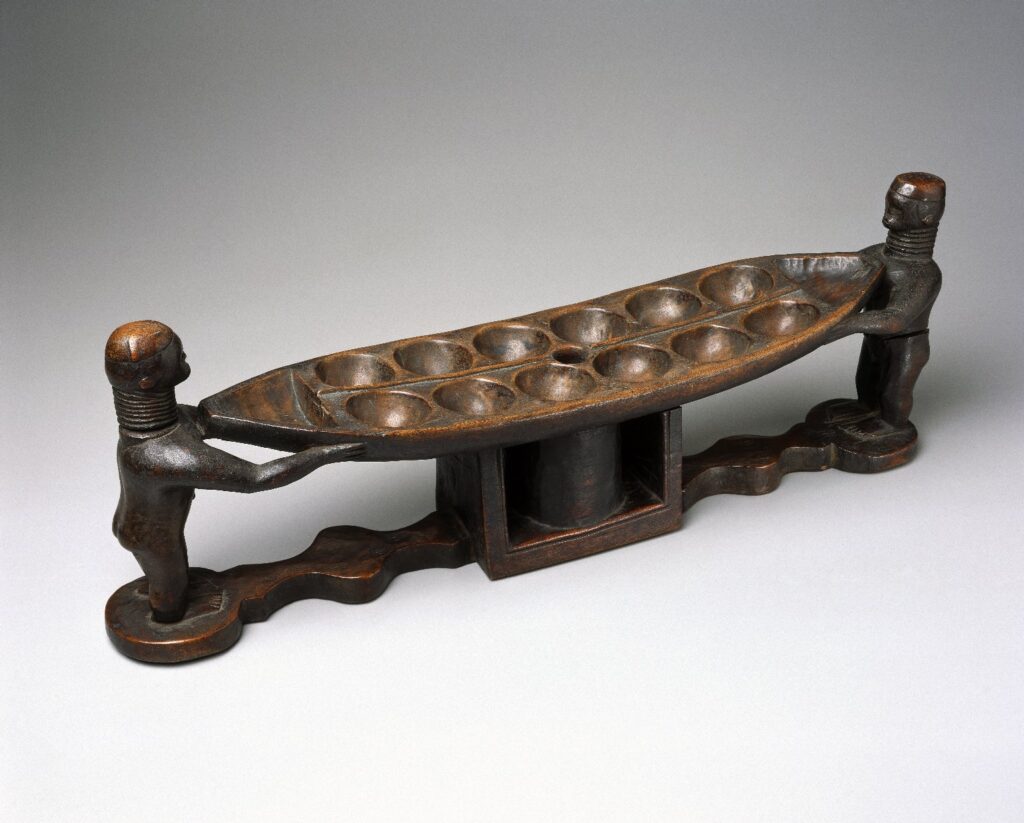KWANZAA HEIGHTS

The Holidayopolis Kinara
WELCOME TO CONGO SQUARE

Dr. Maulana Karenga, as the creator of Kwanzaa, the Celebration of the First Fruits, is honored here for conceiving this holiday that adds so much value to those who observe it. Kwanzaa is based on the traditional harvest celebrations throughout Africa for thousands of years. In 1966, Karenga (whose last name means “keeper of tradition” in the Kiswahili language), created Kwanzaa to offer a constructive, ethical, and action-oriented paradigm for community uplift and progress. Today Karenga, chair of the Africana Studies Department at California State University, Long Beach, speaks on Kwanzaa each year at various events in the U.S and abroad. Kwanzaa is now celebrated in over a dozen countries and island nations across the world. — Maitefa Angaza, author of Kwanzaa: From Holiday to Every Day. Dafina Books, 2019
This place is a portal to our history and our past, a place for unifying the African Diaspora in Holidayopolis. It is a place where many different languages are spoken but everyone can understand one another. It is a very busy place of people coming together with the purpose of unifying their efforts of self determination, collective work, cooperative economics, creativity and faith.
Over there is Mama San with her beautiful African dresses. Near her is Joseph with his amazing stories. Thomas sells mystical beads of power and strength. There is Nunu with herbs and spices. Francis offers gold-threaded cloth, incense, and oils. The hair braiders are braiding all kinds of beautiful African styles. Martial arts and yoga are practiced every morning on that corner. At the far end, there is the rodeo. Look! There is Martin Luther King strategizing with Malcolm X and Patrice Lumumba getting ready to lead. And Toussaint Louverture taking over the island.
Over there is Nelson Mandela listening while Steve Biko is telling the crowd, “It is better to die for an idea that will live, than to live for an idea that will die” On the other side is Marcus Garvey giving advice about owning one’s own business. Ida B. Wells is reporting on injustices and lynchings that are occuring Down South while advising Black People what to do. Sojourner Truth is schooling the suffragettes about the history of Black Women leading throughout history even before Queen Nzinga of Matamba in Angola led battles. Congo Square is a place where the sleeping and unaware become AWOKE. One will experience that change is always possible and we should love and celebrate who we are. Black consciousness is everywhere.
Congo Square is a place for the unity of people coming together since the beginning of time. — Jacqueline Wade, author
Words and phrases that are used during Kwanzaa
Kawaida (Kah-wah-EE-dah)
An African-derived doctrine of tradition and reason developed by Maulana Karenga
Kwanzaa (KWAN-zah)
Celebration of the first fruits created by Dr. Karenga and based on Kawaida
Nguzo Saba (In-GOO-zoh- SAH-bah)
Swahili for “The Seven Principles,” the values of African culture on which Kwanzaa is based
Habari Gani (Hah-BAH-ree GAH-nee)
“What’s the News?” A common Kiswahili greeting
Umoja asante (Ooh-MO-jah Ah-SAHN-tay)
The response on the first day of Kwanzaa. It would be “Nia, asante” on the 5th day.
Karamu (Kah-RAH-moo)
A party, feast, or other gathering in celebration, as in “kwanzaa karamu”
Chakula (Cha-KOO-lah)
Food, which is an important aspect of the celebration.
Zawadi (Zah-WAH-dee):
Gifts. They are shared on the 7th day or at a gathering.
Wimbo (WIM-boh)
Song. Kwanzaa songs are sung at gatherings and uplifting music is played
Ngoma (In-GOH-mah)
Drum. Drumming is an integral part of a traditional and festive Kwanzaa celebration.
Warri/Mancala is an African Board Game known by many names and played many ways in almost every country around the world!
If you can count to 20 you can learn and play.

Warri/Mancala is as simple as checkers to learn with the feeling of playing a game on the level of chess! The basic rules for Warri requires a player to pick up all the marbles from a cup on their side and drop one marble into each cup moving counterclockwise around the board. If their last marble being dropped ends in a cup on the other players side, making a final count of two or three, they win those marbles. The first player to win the majority of the marbles is the winner.
Counting and assessing your choice of moves and their outcome is the key to the skill required! We call this process: Stop! Look! Think! Move
The most common and popular board is a ‘two by six’ board with some having a storehouse on each end of the board.
Warri/Mancala is an activity that allows players of all ages to come together. Young children experience the value of counting and using numbers. Young adults experience an exercise in learning decision making: determining choices and anticipating outcomes. All of the inherent skills of being a Warri/Mancala player can carry over into the player’s everyday life and the society and community they interact with.

